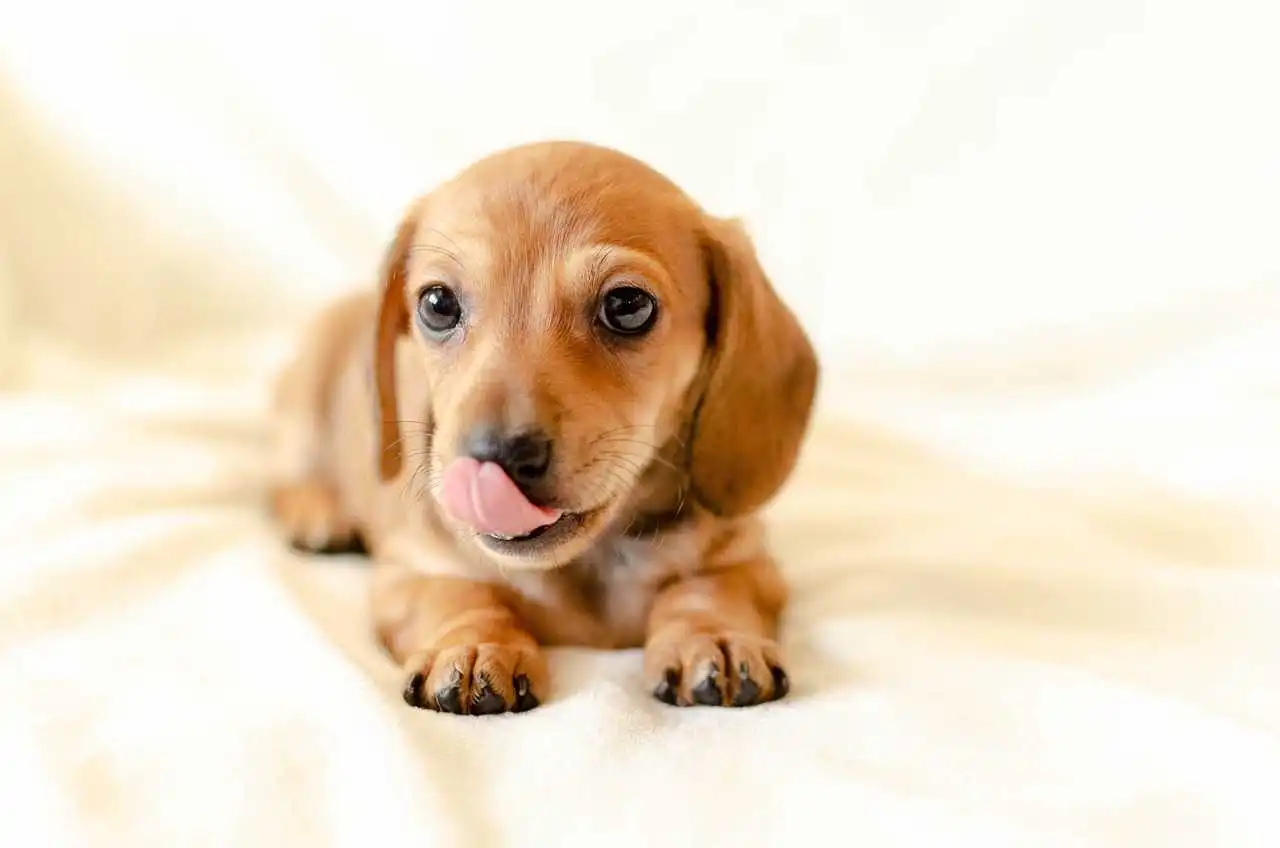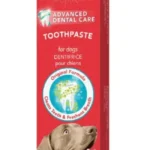If you’re a dog owner, you’ve likely observed some peculiar behaviors from your furry friend. From chasing their tails to burying bones in the backyard, dogs have an uncanny ability to surprise and amuse us. One behavior that may leave you scratching is when your dog obsessively licks blankets. Why do dogs lick blankets? And is there any reason for concern?
Why Do Dogs Lick Blankets Constantly?-9 Reasons
It’s common to see dogs engaging in repetitive licking behavior, especially regarding blankets. There are several possible reasons for this seemingly strange habit:
Comfort and Security
Dogs are creatures of comfort and often seek solace in familiar scents and textures. Licking blankets can give them a sense of security by activating their innate nesting instinct. Their owners’ scent on these items gives them a sense of security and safety. The softness and warmth of the fabric mimic the feeling of snuggling up against their mother or littermates. Thus providing a source of comfort and reassurance.
Behavioral Conditioning
Just like humans, dogs can develop habits through behavioral conditioning. Excessive licking can be a manifestation of behavioral issues. For example, if your dog has previously associated licking blankets with receiving attention or positive reinforcement from you or others. Then, they may continue this behavior to elicit the same response again. It becomes a learned behavior that is reinforced over time. In such cases, training your dog to stop licking is essential. This can be done using positive reinforcement techniques or consulting a professional dog behaviorist.
Anxiety or Stress Relief
Licking can be a way for dogs to self-soothe during anxiety or stress. If your dog feels anxious or overwhelmed, it may turn to licking as a coping mechanism. The repetitive motion and sensory stimulation can help them relax and alleviate their emotional distress.
Dogs who struggle with separation anxiety may exhibit increased licking habits—licking releases endorphins, helping to soothe their anxiety in the absence of their owners.
Coping Mechanism
Like humans biting their nails when anxious, dogs might resort to excessive licking to deal with emotional upheaval due to separation anxiety, stress, or boredom. The licking releases endorphins, helping them calm down and manage their nervous energy.
Medical Issues
Suppose a dog has specific health problems like dietary deficiencies or digestive disorders. In that case, they might lick blankets or furniture to supplement their diet or soothe their upset stomach. Skin irritation or dead skin cells could also prompt licking as an instinctual response to alleviate discomfort.
Obsessive Compulsive Disorder (OCD)
Just as humans cope with OCD through repetitive behaviors, dogs may resort to incessantly licking blankets and furniture. This compulsive behavior can serve as an outlet for their anxiety, providing a form of relief. Not sure if your dog has OCD or not? Here is how obsessive-compulsive disorder manifests in dogs.
Lack of Stimulation
Dogs lacking adequate physical or mental stimulation may turn to licking and chewing objects, including blankets and furniture. Providing them with chew toys can divert their attention and discourage this behavior.
Nutritional Deficiency
In some instances, dogs may lick furniture and other objects due to a lack of essential nutrients from their dog food. They may engage in this behavior in an attempt to supplement their diet. If your dog shows this compulsive behavior, it’s a good idea to consult your vet about possible dietary adjustments.
Allergies or Skin Irritation
Frequent licking of blankets may be a sign of allergies or skin irritation. Dogs with allergies often experience itchiness, and licking is their way of relieving discomfort. If your dog’s blanket licking is accompanied by excessive scratching, redness, or hair loss, it’s essential to consult with a veterinarian to determine the cause and appropriate treatment.
Why Do Dogs Lick Blankets and Sheets?
Dogs may lick blankets and sheets for various reasons relating to their physical and emotional health. At times, it might simply be because these fabrics retain the scent of their owners, providing them with a sense of comfort and security. While blankets are a common target for licking, your dog may also extend their tongue to sheets. Here are a few possible reasons why:
Salt Attraction
Human sweat contains salt, and dogs are naturally drawn to the taste. If you’ve recently been lying on the bed or your sheets retain your scent, your dog may be licking them to satisfy their salt cravings. This behavior is widespread if you’ve been sweating or have applied lotions or creams with appealing scents.
Boredom or Lack of Stimulation
Dogs thrive on mental and physical stimulation. If they’re not receiving enough exercise, playtime, or mental enrichment, they may resort to licking blankets and sheets out of boredom. It’s their way of occupying themselves and seeking sensory stimulation when there’s a lack of other outlets for their energy.
Why Does My Dog Lick Blankets and Couches?
Blankets aren’t the only fabric that captures a dog’s fascination—couches can also fall victim to their relentless licks. Here are some potential explanations:
Scent Marking
Dogs have scent glands in their paws, meaning that when they lick objects like couches, they leave behind their unique scent as a form of marking territory. By doing so, they’re proclaiming ownership over the couch and creating a familiar environment that smells like them.
Food Residue
It’s no secret that dogs love food. If you’ve recently enjoyed a snack or meal on the couch, residual food particles may be left behind. Your dog’s keen sense of smell detects these remnants and prompts them to lick the couch to find some tasty morsels.
Why Does My Dog Keep Licking Blankets and Pillows?
If your furry companion extends their licking repertoire beyond just blankets and moves on to pillows, here are a couple of reasons why:
Scent Familiarity
Pillows often retain our scent due to proximity to our heads while sleeping. Your dog may be drawn to the comforting smell of your pillow and engage in licking behavior to feel closer to you when you’re not around.
Nesting Instincts
Dogs have an innate nesting instinct that drives them to create comfortable spaces for themselves. Pillows provide softness and warmth akin to bedding material, making them an attractive target for nesting behaviors such as licking.
Stay tuned for part two of this blog post series, where we will explore more intriguing reasons behind dogs’ blanket-licking habits! In the meantime, observe your furry friend’s behavior closely and continue providing love, care, and plenty of engaging activities to stimulate their minds.
What to Do About a Dog that Constantly Licks Blankets Due to Behavior Conditioning
Treating behavioral issues in dogs largely depends on the nature and severity of the behavior exhibited. However, here are some general steps that can be taken:
Identify the Underlying Cause: The first step to addressing behavioral issues in dogs is to ascertain the root cause. This often involves an examination by a veterinarian to rule out any medical conditions contributing to the problem.
Behavioral Modification Therapy: Like humans, cognitive behavioral therapy can be effective for dogs. This involves redirecting your pet’s negative behaviors into positive ones and rewarding them for their good behavior.
Consistent Training: A consistent and structured training regimen is essential. This should be done using positive reinforcement methods, rewarding good behavior with treats or praise, which can be more effective and beneficial to your dog’s overall well-being than punishment-based methods.
Professional Help: If the issues persist, it may be advisable to seek help from a professional dog behaviorist or trainer. They have the knowledge and experience to navigate complex behavioral problems and can provide strategies tailored to your dog’s needs.
Medication: In some severe cases, medication may be necessary. This is typically the last resort and should only be considered under the advice and supervision of a veterinarian. Remember, medication should be paired with behavioral modification therapies for the best results.
Addressing the Behavior
- Provide Alternatives: Offer your dog alternative items, such as chew toys or puzzle toys, that can redirect their attention and provide mental stimulation. This can help distract them from licking blankets.
- Increase Exercise and Mental Stimulation: Ensure your dog is getting enough physical exercise and mental stimulation throughout the day. Engaging activities, such as regular walks, playtime, and training sessions, can help reduce anxiety and boredom.
- Create a Calming Environment: Create a safe and calm environment for your dog by providing a designated space with their bed or blanket. This can help them feel secure and reduce the need for excessive licking.
- Consult with a Veterinarian: If your dog’s licking behavior becomes excessive or worrisome, it’s always a good idea to consult with a veterinarian. They can help rule out any underlying medical conditions that may be causing the behavior and provide guidance specific to your dog’s needs.
Bottom Line
The behavior of dogs licking blankets, furniture, and other objects is not uncommon and can be attributed to various factors. These can range from a simple comfort-seeking behavior, where dogs associate the scent of their owners on these items with a sense of security and safety, to more complex psychological or health-related motivations.
Regardless of the cause, if your dog displays excessive licking behavior, it is crucial to consult a professional. This could be a veterinarian for a health check or a pet behaviorist for further insight into potential psychological or emotional issues. They can guide you in taking the appropriate steps to ensure your pet’s health and well-being. Additionally, it is important to understand dog behavior to coexist with your furry friend better,





